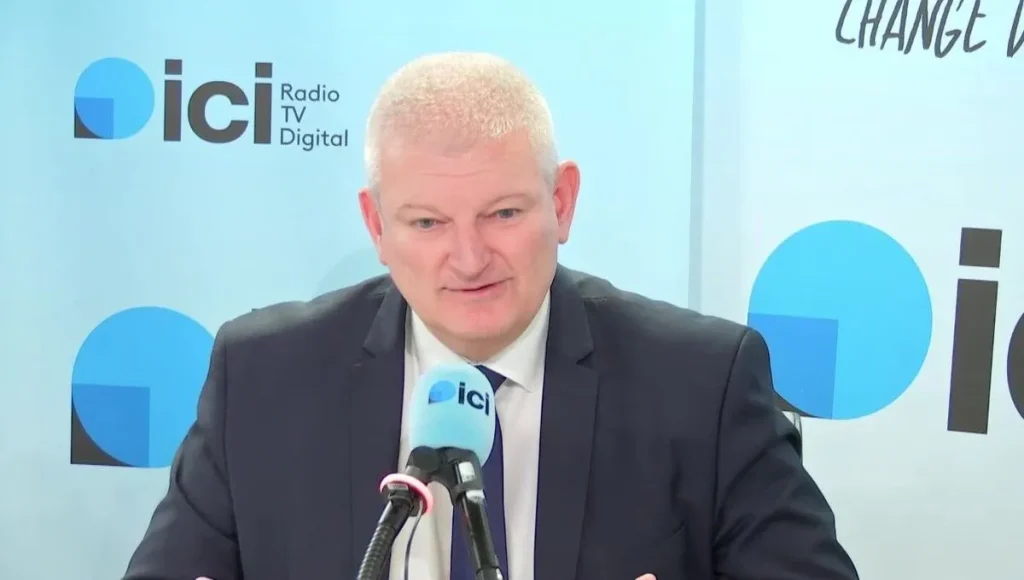Double Standards
What do these debates involve? Two proposed laws are on the agenda at the National Assembly: palliative care and assisted dying. These delicate topics have gained attention in recent years with the growing number of people in advanced age or with severe disabilities wishing to die with dignity. MPs will need to examine these matters with great care in the coming days. The situation is so tense that political parties have not issued any voting instructions — the decision will be left to each MP’s conscience and wisdom. (1,3)
At the Heart of the Debate
Both laws are being considered in May 2025 and take radically opposing positions. The proposed law on palliative and supportive care is led by Renaissance MP Annie Vidal, who is opposed to assisted dying as it is presented. Last April, she secured unanimous approval in committee for this proposal, which aims to improve access to palliative care and healthcare worker training. (4) Her objective is to increase accessibility to palliative care, which has been legally recognized since 1999, but remains inadequately implemented due to lack of resources. (5) Moreover, according to the French Court of Auditors, healthcare staff are often unequipped to support people nearing death, especially in nursing homes or at home. (5) The aim here is to enhance the dignity of people at the end of life.

Annie Vidal, at the National Assembly. © Maxppp – Aurélien Morissard
The proposed law on assisted dying, on the other hand, is led by Modem (centrist) MP Olivier Falorni(6), a staunch advocate of the “right to die with dignity.” He seeks to allow assisted suicide and euthanasia for people suffering from serious and incurable illnesses in advanced or terminal stages. (1) This text, opposed by many right-wing and far-right elected officials, even creates divisions within the government — with support from Justice Minister Gérald Darmanin and strong opposition from Interior Minister Bruno Retailleau. It was approved in committee with 28 votes in favor, 15 against, and one abstention. (4)

Olivier Falorni – MP for Charente-Maritime © Radio France
Divisions and Questions
On the morning of May 12, Health Minister Catherine Vautrin stated on BFMTV that “no healthcare professional will be forced to carry out a lethal act.” She also mentioned that a “conscience clause” would apply. (7) Initially, the text on assisted dying stipulated that the individual must perform the final act themselves (except in cases of incapacity, where a healthcare provider could assist). After committee review, this provision was revised to give the person the option to choose whether to act themselves or be assisted. Also included are people with severe disabilities, old age with a life-threatening prognosis, or victims of serious accidents. (8)
As Emmanuel Macron is set to be interviewed on TF1 by journalist Charles Biétry — who lives with ALS — on the evening of May 13, the adoption or rejection of these two bills is at the heart of many conversations among French citizens. (4) Especially for those living daily with neuromuscular diseases such as ALS or multiple sclerosis: “This end-of-life law is necessary,” says Michel, who has ALS. (9)
For many ill individuals in France, the consideration of the assisted dying bill is a long-awaited relief. Yet, the text also raises deep concern among some elected officials who call it “unbalanced,” like Interior Minister Bruno Retailleau. (10) In contrast, former Prime Minister Gabriel Attal and singer Line Renaud co-authored an op-ed in support of it. (10)
“I’ve been waiting for this law.” | Loïc, person with ALS (11)
A Divided Opposition
This is a debate dominating headlines across all major French newspapers. The journal La Croix explored Catholic perspectives on the matter — a religion that condemns suicide as a sin leading to eternal damnation. Among those cited was Archbishop Éric de Moulins-Beaufort of Reims, who responded to Emmanuel Macron’s May 6 statements by saying: “No, Mr. President, the choice to kill or help someone die is not the lesser evil. It is simply death — abandonment, and the refusal to help to the end.” (2,12)
He even paired his statement with a photo and quote from the late Pope Francis: “Life is not to be played with,” the Pontiff had said in 2023 during a visit to Marseille. (12)

France’s National Health Authority (HAS) also pointed out that the eligibility conditions in the assisted dying bill make it impossible to estimate life expectancy solely based on a disease. Life expectancy, it argued, must be assessed individually, as too many subjective factors exist — such as personal resilience, specific medical practices, etc. (8)
It also raises the question of the psychological impact on the caregiver or loved one who performs the assisted suicide or euthanasia. Psychological support seems essential, especially in cases of family disagreement or internal conflict in the caregiver. The concern raised by HAS will likely weigh heavily on the conscience of MPs casting their vote: when — and who — can decide that a life is no longer worth living?
A Look Abroad
France is not the first country to debate dignified dying. Luxembourg, the Netherlands, Germany, Belgium, Switzerland, Spain, Portugal, and Austria have already adopted and implemented laws legalizing assisted suicide and euthanasia under specific conditions. (13) In all these European laws, assisted dying is never granted freely: unbearable suffering — physical and/or psychological — must be demonstrated, and the will to remain mentally competent before death clearly stated. (13) The bill led by Olivier Falorni follows this model.
The spread of this issue across other countries highlights its relevance in today’s world and a broader shift in societal values. These changing values promote freedom and autonomy — often achieved today through home adaptations or the use of medical devices.
Autonomy, Dignity, End-of-Life: ORTHOPUS Reflects
Although both texts are progressing side by side, it is the proposed law on assisted dying that commands the most attention. It is the subject of complex discussions that intertwine ethical, moral, religious, psychological, and personal considerations. In contrast, the bill on palliative care has broad support and is expected to pass smoothly.
At ORTHOPUS, these questions deeply resonate with our commitment to autonomy and dignity. The debate on assisted dying goes beyond the medical sphere — it probes our collective, but also deeply personal and intimate, relationship with suffering, vulnerability, and death — topics still often considered taboo.
But beyond the ethical implications or personal freedom, this is also a profoundly social issue — inviting us to reflect on how we care for one another and the respect we owe each person.
We believe that the decisions currently being discussed in the National Assembly must include the voices of those directly affected — individuals living with unbearable suffering, their loved ones, and caregivers — in order to build a law that is truly human and rooted in real lived experiences.
SOURCES :
- Information and Analysis on the Life of the Church – March 2025. France: Palliative Care and Euthanasia.
- La Croix – May 2025. Lois fin de vie : l’inquiétude monte dans le monde catholique.
- Le Marianne – May 2025. Sémat C. Bertrand-Léo Combrade : « La consigne de vote laisse toujours une marge de manœuvre à chaque parlementaire. »
- Franceinfo – May 2025. Fin de vie : « Aucun soignant ne sera obligé de pratiquer l’acte létal », assure Catherine Vautrin, avant l’examen des textes sur l’aide à mourir à l’Assemblée nationale.
- Franceinfo – May 2025. Fin de vie : cinq questions sur les « soins d’accompagnement » palliatifs que le gouvernement veut développer.
- Les Echos – September 2022. Assemblée nationale : Olivier Falorni rejoint le groupe Modem.
- BFMTV – May 2025. Projet de loi sur la fin de vie: « Je ne veux pas utiliser le mot euthanasie », indique Olivier Falorni.
- Ouest France – May 2025. Fin de vie : que contiennent les deux textes débattus à l’Assemblée nationale à partir de ce lundi ?
- TF1 INFO – May 2025. « Cette loi sur la fin de vie est nécessaire »: le témoignage de Michel, atteint de la maladie de Charcot.
- The European Conservative – May 2025. Macron Government’s Assisted Dying Bill Back on the Agenda.
- RFI – April 2024. Reportage France – Fin de vie: «Cette loi je l’attendais», le témoignage de Loïc atteint de la maladie de Charcot.
- La Croix – May 2025. Fin de vie : le président de la Conférence des évêques répond à Emmanuel Macron.
- Euronews – December 2024. Quels pays européens autorisent le suicide assisté et l’euthanasie ?
Clémence est spécialisée en édition et en communication. Forte de premières expériences en communication dans des maisons d’édition et des bibliothèques multi-culturelles, elle a rejoint ORTHOPUS où elle est en charge de la rédaction des contenus sur des supports de communication print et web.

